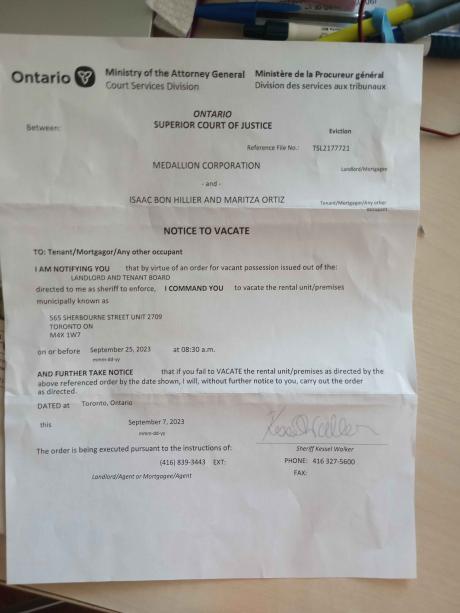Is Fundamental the Same as Legal?:
A Look at Judicial Review
Judicial review is one of the most foundational concepts of the American democratic system, serving as a mechanism for the courts to check the power of the legislative and the executive. While this judicial power has been instrumental in upholding the values of the Constitution, it has always stood on uncertain legal ground. References to judicial review cannot be found anywhere in the Constitution, nor in any codified law: it exists as a self-defined power of the Supreme Court, authorized only by the Court itself. This self-authorization seems at odds with the defined role of the judiciary as simply a mechanism of legal interpretation. Yet, to question judicial review would be to question one of the most important protections against executive or legislative overreach that the United States government offers. To understand why the system of judicial review is so bizarre, one must understand its unconventional history.
Chief Justice John Marshall established judicial review in the American legal system in his 1803 decision of Marbury v Madison. In the last days of the Adams administration, several government officials had been appointed to public office, including William Marbury. Adams intended for Marbury to be a justice of the peace, which is essentially a minor judge. While Marbury was appointed by the president, his commission (which would officially allow him to begin work) had not been delivered by the time Adams left office. A fierce rival of Adams, newly-inaugurated President Thomas Jefferson ordered Secretary of State James Madison not to deliver Marbury’s commissions. Marbury and several other plaintiffs leveled a case against the administration, asking that the Supreme Court issue a writ of mandamus to Secretary Madison, which would force him to deliver the commissions. While the Court did find that Marbury and some others were entitled to their commissions, Marshall’s decision also stated that provisions of the Judiciary Act of 1789, which allowed Marbury to bring the case directly to the Supreme Court, exceeded the Court’s power of original jurisdiction per the Constitution and were therefore unconstitutional. In this crucial and unanimous decision, Marshall allowed the judiciary the power to void laws it deemed unconstitutional. Effectively, the court ceded that it lacked the constitutional power to original jurisdiction over cases involving writs of mandamus, but declared that it had the right to a much greater power: to void laws that conflicted with the Constitution.
Superficially, Chief Justice Marshall’s decision seems like it is based on faulty logic. Giving the Court power to void “unconstitutional” laws seems to conflict with the basic mission of the Court, to uphold the law and the Constitution. The irony in this circumstance is that the Supreme Court’s self-declared right to decide what is–or is not–constitutional is not actually written in the Constitution. That said, these were the earliest days of the United States, when the norms of the law were still being established. The judiciary was relatively weak compared to the executive and legislative branches, and the idea of a flexible interpretation of the language of the law had not been fully explored. From one perspective, Chief Justice Marshall’s decision may seem like a judicial power-grab, but judicial review has proven to be more helpful than harmful. The Constitution is meant to be the Supreme Law of the Land, yet there is no mechanism for striking down laws that are in violation thereof. Also, once judicial review was established as a practice of the Court, it would be impossible for Congress to dismantle it with legislation, because the Court could strike down any law limiting its own power to review laws–review serves as the ultimate limitation to legislative power. In later cases, the Supreme Court expanded its jurisdiction of judicial review to include laws at state level, bureaucratic actions and procedure, as well as presidential actions such as executive orders.
To say that judicial review is unconstitutional, or to question its benefits, amounts to legal blasphemy. It has long been accepted as a norm of the judiciary, but that is not to say that perspective on the extent of its power is unanimous. There are two schools of thought which define the dialogue on judicial review: judicial activism, and judicial restraint. While many claim to be on one side of the debate or the other, these two groupings encompass a perspective on individual cases of judicial review rather than general opinions; some simply tend to take one side more often than another. To call a decision “activist” is to criticize it for striking down a law which is popular, or on solid constitutional grounds. In situations of judicial activism, the Court strains the limits of its powers. To call a decision “restrained” is to say that it fails to strike down a law that is unconstitutional. Given that these are not strict ideologies, Democrats and Republicans today straddle opposite, yet often shifting, sides of the debate. Historically, liberals have often favored decisions that conservatives found too activist. One such case would be the famous Roe v. Wade, when a Texas woman sued the state for her right to an abortion. The Supreme Court struck down the law prohibiting abortion on the grounds of a woman’s right to privacy per Griswold v. Connecticut. This decision affected the law in 46 states, and was extremely controversial at the time because it seemed an overstretched interpretation of the First and Fourteenth Amendments of the Constitution. That being said, most of the arguments against the ruling were either broad accusations of judicial activism, or thinly veiled religious objections.
While not a remedy to arguments over activism, originalism, and other judicial philosophies, strengthening the legality of judicial review may be the best way to remedy its ambiguities. In order for the system to have a strong legal base, it might be ideal to establish a separate court for constitutional matters via an amendment to the Constitution itself. While this would likely never happen since the current system has been recognized as legitimate for centuries, having a core function of government rest on unwritten convention seems unsettling at the least.






Comments